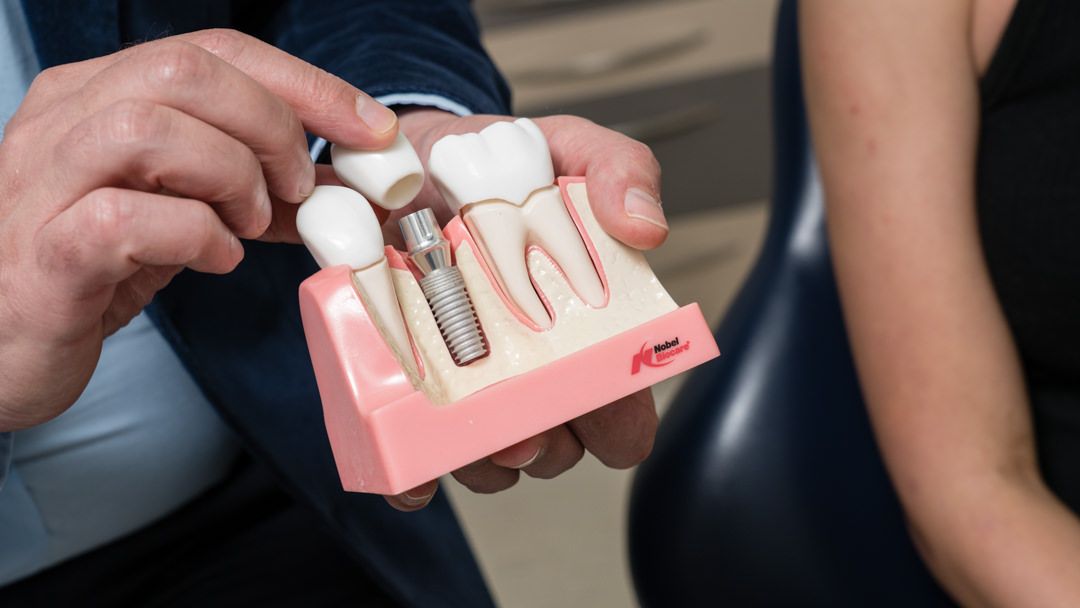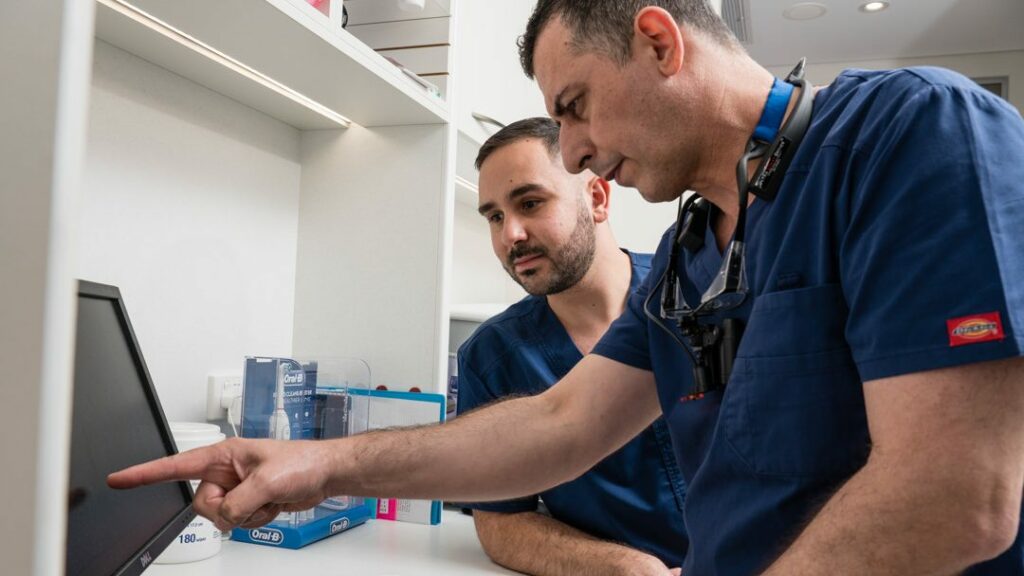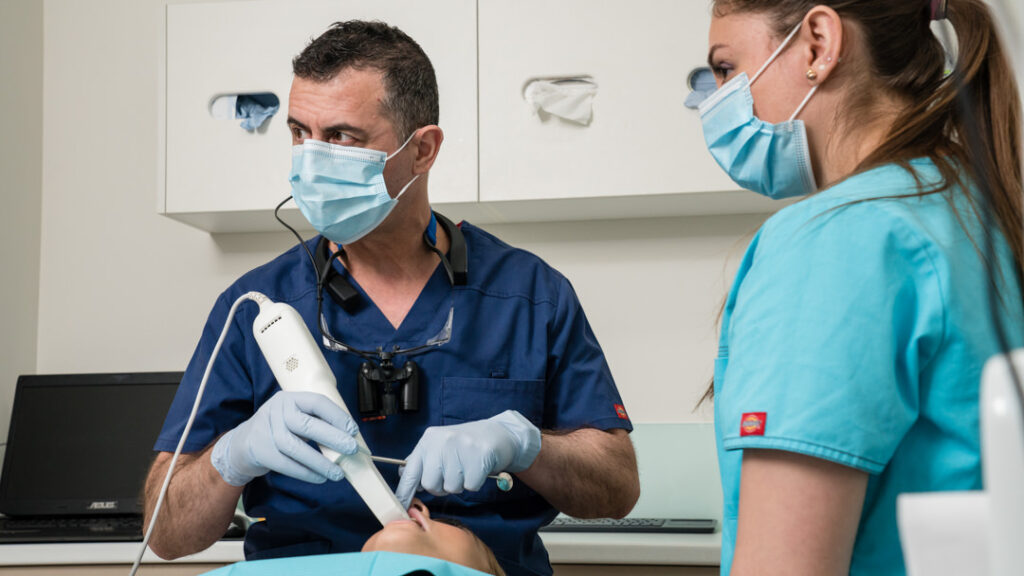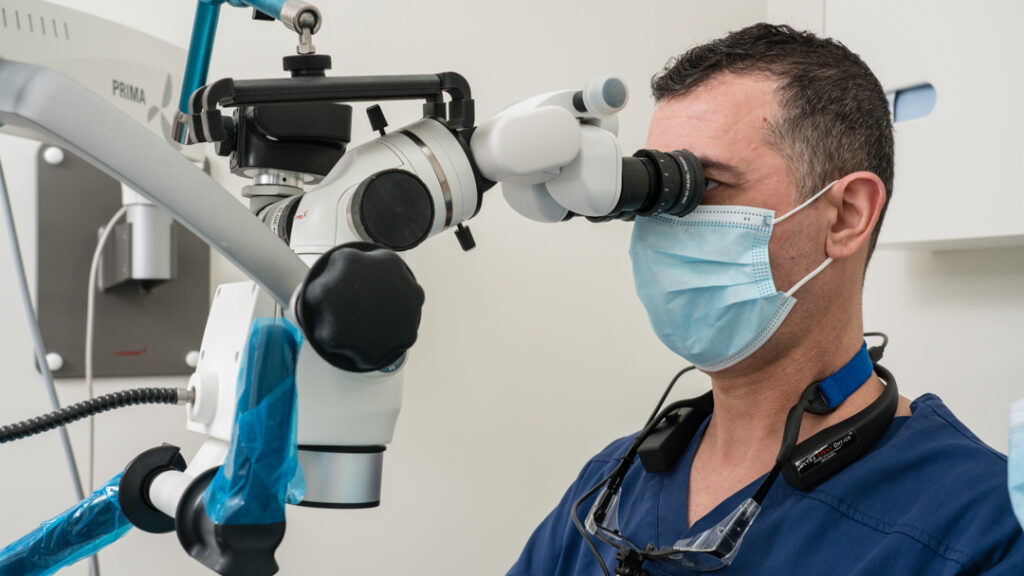
Dental Implants And Flossing: How To Do It The Right Way
Envision the gleaming perfection of a pearl, nestled securely within an oyster’s shell. This image mirrors the function and aesthetic appeal of dental implants – titanium alloy posts surgically embedded into the jawbone to replace missing teeth and restore the facial structure.
Just as the pearl requires proper care for its luster, dental implants demand diligent maintenance – notably flossing – for their longevity. Despite this similarity, disparity exists in maintaining natural teeth and dental implants, particularly concerning flossing techniques.
This guide serves to demystify these differences, provide practical guidelines on mastering the art of flossing around dental implants, debunk common misconceptions surrounding implant care, and introduce specialised tools designed for implant maintenance.
The objective is to empower individuals with knowledge of appropriate oral hygiene methods for dental implants that will facilitate their durability without compromising oral health.
Dental Implants: A Brief Overview
Ironically, while dental implants mimic the natural structure of real teeth remarkably well, they are made from a titanium alloy, a material far stronger and more durable than anything found in our original oral architecture. Dental implants serve as an artificial root that anchors replacement teeth firmly into the jawbone.
The procedure to install these implants is performed by a specialised implant dentist and involves precise surgical placement of the implant. Following the initial dental implant surgery, there’s an essential healing period during which osseointegration occurs – this is when the bone fuses with the implant creating a steadfast bond.
Ensuring proper dental implant care during this time aids in successful osseointegration and longevity of the implant, making it a reliable solution for tooth loss.
The Significance of Flossing for Implant Health
Maintaining the health of prosthetic tooth roots significantly hinges on regular and correct cleaning techniques, notably the often overlooked practice of dislodging food particles and plaque nestled between them.
The role of flossing routines in preserving implant health is paramount, particularly for dental implants that mirror natural teeth in structure yet require specialised care. Flossing aids in maintaining optimal dental hygiene by eliminating harmful bacteria around these artificial structures in the mouth.
However, suitable methods must be employed to prevent damage to the delicate gum tissue surrounding these implants. Utilising proper techniques when flossing not only ensures cleanliness but also contributes significantly to prolonging the lifespan and functionality of dental implants, solidifying its status as an indispensable part of daily oral hygiene routines.
Dental Implants vs. Natural Teeth
In the realm of oral hygiene, a clear divergence emerges between natural teeth and their prosthetic counterparts when it comes to interdental cleaning methods. Dental implants necessitate particular attention during flossing to prevent complications such as dental implant failure.
Unlike natural teeth, which are anchored by periodontal ligaments allowing slight movement while cleaning, dental implants are fixed solidly into the jawbone through osseointegration. This difference mandates a modified approach towards maintaining optimal oral hygiene habits for individuals with dental implants.
Specialised floss or tools may be required to facilitate effective cleaning around the abutments of dental implants without causing damage. Therefore, understanding the distinctions between these and traditional floss tools is critical in ensuring the longevity and functionality of dental implants while preserving overall oral health.
Mastering the Art of Flossing Around Dental Implants
Mastering the technique of interdental cleaning around prosthetic teeth replacements is a critical aspect of oral healthcare. Dental implants, unlike natural teeth, are non-self-cleaning and require meticulous oral hygiene practices to maintain their longevity.
The use of dental floss plays an indispensable role in achieving this. However, flossing around dental implants can be challenging due to their unique structure and placement within the jawbone. Therefore, mastering the art of flossing around dental implants is crucial for preventing plaque build-up, gum diseases, and implant failure.
This involves learning how to maneuver the floss correctly under the artificial crown and around the titanium post without causing trauma or dislodgement. Regular practice coupled with professional guidance can significantly increase the chances of having a more beautiful smile and improve proficiency in maintaining optimal implant health through effective flossing techniques.
Debunking Myths: Avoiding Flossing Pitfalls with Implants
Disentangling the web of misconceptions surrounding oral hygiene practices with prosthetic tooth replacements is paramount, as falling into these common traps could potentially undermine the integrity and lifespan of the treatment.
One of the most prevalent myths implies that dental implants require less diligent care than regular teeth. The truth is that flossing remains just as crucial in maintaining dental implant health as it does for their natural counterparts.
Avoiding flossing pitfalls with implants involves understanding that debris accumulation can lead to peri-implantitis, a condition threatening implant longevity. Therefore, proper oral hygiene must be underscored during postoperative instructions. This ensures that dental implant patients are equipped with accurate knowledge for optimal dental implant maintenance, sustaining both functional and aesthetic aspects long-term.
What are Implant-Specific Flossing Tools?
Navigating the complex landscape of implant-specific oral hygiene tools is essential for ensuring optimal health and longevity of prosthetic teeth.
These tools are specifically designed to clean dental implants effectively while preventing damage to the surrounding tissues in the entire mouth.
- Implant-Specific Floss: This type of floss is thicker and softer, specially meant for cleaning around dental implants without causing any harm.
- Interdental Brushes: These small brushes can reach crevices that regular manual toothbrushes cannot, making them a valuable flossing tool for maintaining oral hygiene habits with implants.
- Water Flossers: They offer a gentle yet effective flossing technique for flushing out debris from hard-to-reach areas around implants.
- Soft-Picks: They are ideal for removing plaque from under the gum line and between teeth.
Remember, proper usage of these tools is crucial in preserving your dental implants’ condition.
Boost Your Oral Health with justSMILE: Take the First Step Today!
Enhancing oral health through the comprehensive services offered by justSMILE is an investment worth considering today. By focusing on dental implants and dedicated flossing techniques, justSMILE aids patients in maintaining optimal oral hygiene post-implantation.
The emphasis placed on effective flossing ensures that the longevity of dental implants is not compromised by preventable infections or deterioration. With a team of professionals trained in advanced implant care and equipped with state-of-the-art technology, justSMILE provides a top-tier service to all patients.
Dental implants, paired with diligent flossing habits, are critical for sustained oral health under the guidance offered at justSMILE. Contact us today at 02 9159 3764 for a free consultation and take the first step towards a healthier smile with justSMILE’s personalised dental treatment plans and customer-focused approach.
Frequently Asked Questions
What are the potential risks and complications of dental implants?
Dental implant complications can encompass infection, rejection or failure of the implant, damage to surrounding structures, nerve damage causing pain or numbness, sinus problems, and the potential for increased disease susceptibility.
How often should I schedule dental check-ups after getting dental implants?
After the placement of dental implants, it is recommended that patients schedule regular check-ups every six months. This allows for monitoring of implant health and early detection of potential complications.
How does smoking or having a chronic disorder affect the success of dental implants?
Smoking or uncontrolled chronic disorders can negatively impact dental implant success, increasing failure risks due to impaired healing and osseointegration. Individual evaluations are crucial to ascertain suitability for this permanent tooth replacement procedure.
What type of dental insurance plans does justSMILE accept?
justSMILE accepts most dental insurance plans, offering flexibility in payment options. Specific details regarding accepted providers can be obtained by contacting justSMILE directly for comprehensive information pertaining to individual insurance plan acceptance and coverage.
How does the all-on-4 or all-on-6 dental implant procedure work at justSMILE?
At justSMILE, the all-on-4 or all-on-6 dental implant procedure involves surgically placing four or six titanium posts into the jawbone, onto which artificial teeth are secured, providing a complete and permanent set of replacement teeth.



